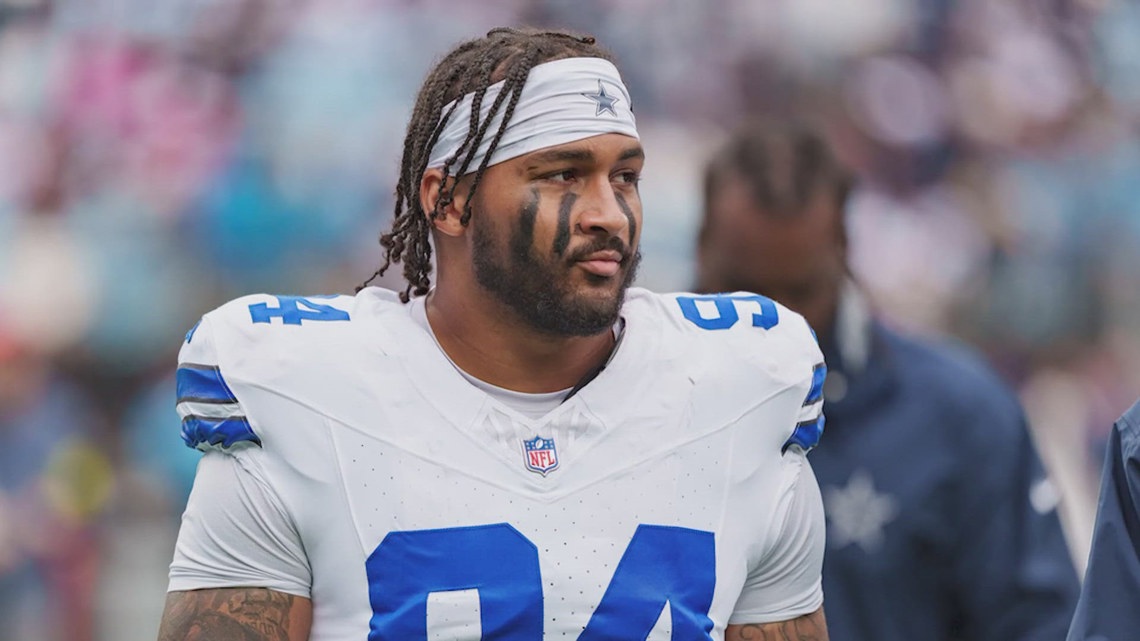
Mental health experts stress awareness and resources after Cowboys player’s death.
DALLAS — Teams across the National Football League held a moment of reflection Sunday to honor 24-year-old Marshawn Kneeland.
Dallas Cowboys defensive end Marshawn Kneeland was found dead on Nov. 6 from a self-inflicted gunshot wound in Frisco, Texas, just days after scoring his first NFL touchdown on Monday Night Football, police said.
He died following a chase with state troopers. A 911 call indicated Kneeland was armed and had a history of mental illness, according to police records.
“Just because we’re on a high doesn’t mean we’re not struggling with things,” said Dr. Peter Thomas, a psychologist and Vice President of Amplified Minds, a Dallas-based mental health organization.
He hopes Kneeland’s death helps people recognize suicide as the public health crisis he said that it is.
“We need to not be afraid to ask,” Thomas said. “We need to be able to say ‘hey, I recognize you’re going through some kind of tough things right now.'”
He said warning signs are often subtle but are common.
“Even statements like ‘I really think you guys would be better off without me,’ those are subtle things that can kind of come up in conversation that can really be easily overlooked,” Thomas said.
Thomas acknowledges cultures in professional sports and families that discourage vulnerability.
“This idea that a lot of times in professional sports or in our families, it’s not ok to be vulnerable, it’s not ok to have emotional struggles, we really need to be able to change that thinking a lot,” he said.
Thomas urged people to directly ask those they care about if they’re considering suicide, noting that such conversations can be lifesaving.
“Sometimes we miss those opportunities by not directly asking the people we care about, ‘Are you ok? And are you thinking about this?;” he said.
Amplified Minds offers free mental health services. Thomas said connection, quality mental health care, medication and therapy can prevent tragedies.
If you or someone you know is experiencing suicidal thoughts, contact the 988 Suicide and Crisis Lifeline by calling or texting 988.
